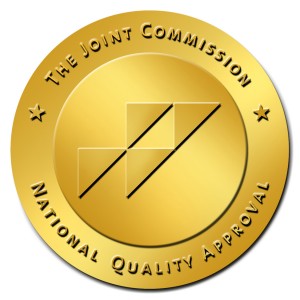The Benefits of The Joint Commission Accreditation
With so many options for healthcare accreditation, many healthcare leaders are asking themselves, “Which accreditation(s) is best for my organization?”
One of those accreditation options is through The Joint Commission (formerly Joint Commission on Accreditation of Healthcare Organizations or JCAHO), which conducts unannounced inspections and ensures quality standards industry-wide. Aside from the seal of approval it offers, the organization also works to help accredited organizations market this achievement as a powerful symbol of their dedication to high quality services.
What does accreditation offer?
Maybe you’re asking yourself, “Where do I even begin?”
One of the most important factors to first consider when looking at different types of accreditation is, of course, the type of gain it offers. TJC Accreditation offers many advantages to those who complete the rigorous process and today has helped nearly 5,000 different healthcare providers earn a competitive edge. Typically, their standards are evaluated every three years.
A few of these benefits include:
- Strengthened patient safety efforts
- Community confidence in your hospital services
- A competitive edge (as many payers seek out organizations with accreditation)
- Risk reduction
- Lowered insurance liability costs
- Improvements to general business operations and revenue cycle
- Ongoing education for staff at all levels
- Intensive review of processes
- Helps attract new staff members and develop current employees
- Authority for Medicare certification
- Improves eligibility for for insurers
- Fulfills state requirements in some states
- Provides tools for strengthening the organization
Aside from all of these benefits, TJC is backed by 60 years of experience–and the fact that about 90 percent of all accredited hospitals have this type of accreditation.
Who is eligible?
According to their website, any healthcare organization is eligible to apply for TJC accreditation under the hospital accreditation standards if every one of the following requirements is met:
- The organization is in the United States or its territories or, if outside the United States, is operated by the U.S. government, under a charter of the U.S. Congress.
- The organization assesses and improves the quality of its services. This process includes a review of care by clinicians, when appropriate.
- The organization identifies the services it provides, indicating which services it provides directly, under contract, or through some other arrangement.
- The organization provides services addressed by the Joint Commission’s standards.
- If the organization uses its Joint Commission accreditation for deemed status purposes, the organization meets the Centers for Medicare & Medicaid Services definition of a “hospital.”
When these basic requirements are satisfied, it’s time to consider your strategy for managing the process.
How do I get the process started?
Beginning TJC accreditation is no small task, and it’s best to work with a consulting firm to help navigate the complex process with many different requirements. At BHM Healthcare, we work with organizations large and small throughout the process, and have a 100% success rate for accreditation. Through every single step, BHM uses tested measures that help make your accreditation process run smoothly and efficiently.
Still not sure which accreditation is right for you?
Use our free accreditation comparison tool to find out which choice is right for your organization.

